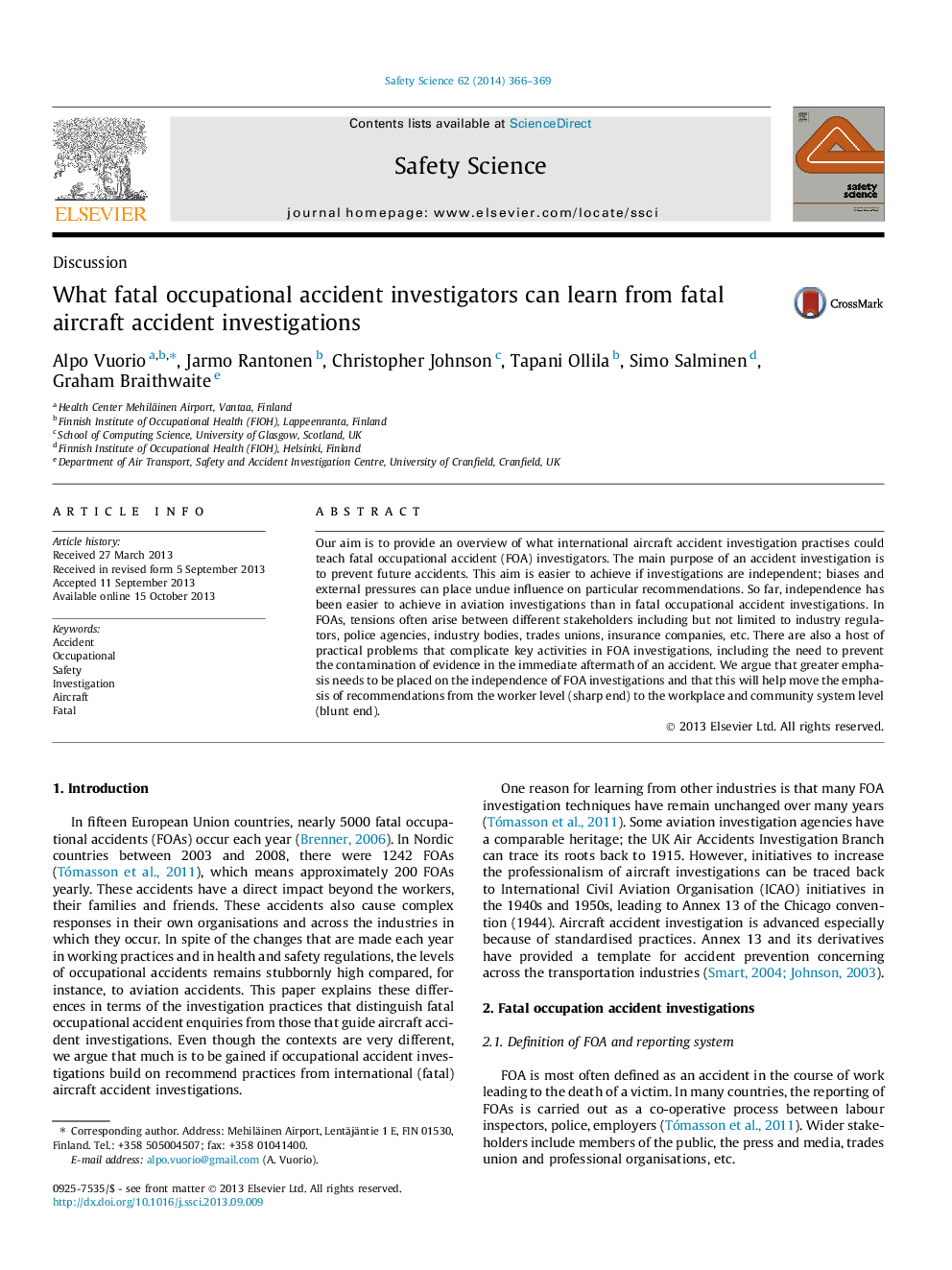| Article ID | Journal | Published Year | Pages | File Type |
|---|---|---|---|---|
| 589240 | Safety Science | 2014 | 4 Pages |
•Improving independence of investigation.•Carrying out real time investigation.•By creating international guidelines and improving education.•Favouring systemic view in investigations.•Keeping relatives informed during investigations.
Our aim is to provide an overview of what international aircraft accident investigation practises could teach fatal occupational accident (FOA) investigators. The main purpose of an accident investigation is to prevent future accidents. This aim is easier to achieve if investigations are independent; biases and external pressures can place undue influence on particular recommendations. So far, independence has been easier to achieve in aviation investigations than in fatal occupational accident investigations. In FOAs, tensions often arise between different stakeholders including but not limited to industry regulators, police agencies, industry bodies, trades unions, insurance companies, etc. There are also a host of practical problems that complicate key activities in FOA investigations, including the need to prevent the contamination of evidence in the immediate aftermath of an accident. We argue that greater emphasis needs to be placed on the independence of FOA investigations and that this will help move the emphasis of recommendations from the worker level (sharp end) to the workplace and community system level (blunt end).
